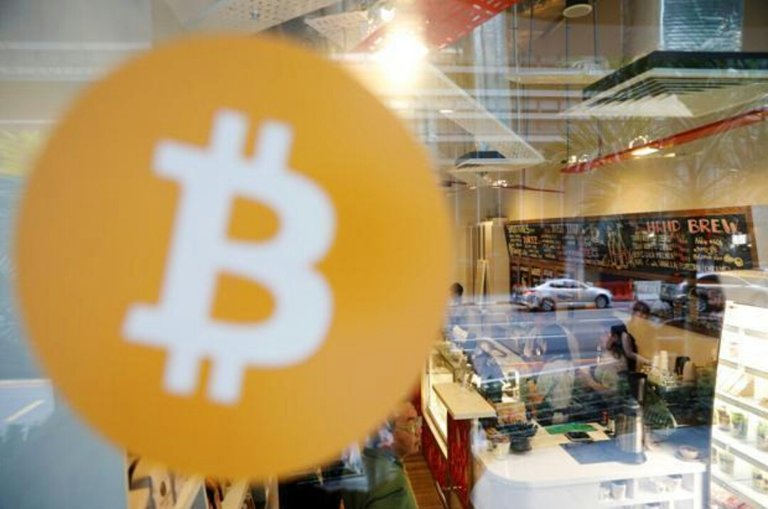After the RBI ban on servicing crypto exchanges came in to effect for banks, some crypto currency exchanges in India have moved to peer to peer transactions to trade crypto currencies

After the Reserve bank of India restricted banks from adjusting crypto trades, a couple of them moved to P2P stages to empower crypto-rupee exchanging. The question arise to whether P2P is the future for such trades.In the wake of Save Bank of India's (RBI) order to banks and other RBI-directed elements to suspend all exchanges with crypto trades, successful 5 July 2018, crypto-rupee exchanges have endured a shot. We have been seeing a couple of elective practices in the Indian market, where distributed or P2P models are adjusted to make crypto exchanges conceivable.
It is appropriate to take note of that the advisory group constituted by the back service to build up a structure to manage cryptographic forms of money is relied upon to turn out with its report in July.
While the business in India has begun reacting with interchange models to bargain in cryptographic forms of money, they ought to guarantee that these models don't disregard the directions in any way.
At present, the administrative condition is as yet rising and it will be imperative to watch the improvements in the panel report.Globally, too, there are fluctuated directions on cryptographic forms of money running from renunciation to contingent acknowledgment. Subsequently, the administrative structure needs to develop to unmistakably characterize the level of acknowledgment and should be sufficiently complete to obviously explain the desires from banks and money related organizations, digital currency trades, fintech organizations advancing in the business and, last however not minimal, assurance of financial specialists.
The digital money showcase in India has developed significantly over the most recent couple of years. Despite the fact that exchanging virtual monetary forms has come to $3.5 billion worth of exchanges, there is still absence of a lawful system to control the market.In India, digital currencies are not perceived as lawful tenders by the RBI but rather so far there is no law that has proclaimed them "illicit" regardless of. The ongoing RBI boycott, an uncommon move, has without a doubt influenced the trades to thump on the entryways of courts and question the protected legitimacy of the roundabout. The issue is as a rule intently observed by the trades as well as brokers and the legislature.
In the in the interim, there have been declarations by the fund service to present an administrative structure for the part. It appears to be far-fetched that the legislature will by and large announce the monetary standards illicit, considering the high stakes included. In any case, the proposed directions could be stringent given RBI's turn. Since the segment has colossal ability to create income as expenses, if controlled legitimately, the need of great importance is to get a successful as opposed to a backward system. The ongoing spate of cheats in virtual cash exchanges can be diminished if directions give appropriate balanced governance, hence bringing the area under the legitimate umbrella.
Following the prohibition on digital currency by the RBI, the P2P method of exchanges has developed as a financially feasible choice for the expanding crypto brokers and speculators. Be that as it may, the P2P variation must be a between time arrangement, and wouldn't characterize the fate of crypto exchanging and interest in India.P2P is still in the hazy area according to the RBI round, which banished organizations as well as people who are associated with the buy and offer of crypto utilizing RBI-managed elements, for example, banks. Indeed, even on account of direct exchanges among peers, where the trade would regularly act like an escrow, offers adapt to present circumstances amid budgetary audits.We consider the P2P method of crypto exchanging as a convenient solution, following the RBI boycott. The RBI and the legislature of India need to concoct more grounded controls that would shield the premiums of the clients, while enabling trades to flourish but then check the issues of tax evasion and other illicit exercises being completed through crypto exchanging.
Most crypto organizations have officially actualized AML (hostile to illegal tax avoidance) and KYC (know your client) rules and will work with the specialists to have essential directions set up. In any case, a sweeping boycott will just limit goal-oriented financial specialists, and push them to embrace implies that are not helpful over the long haul.
With the present RBI boycott set up, individuals have no other option yet to utilize P2P. We were compelled to conceive brand new ideas because of the boycott and understood an awesome P2P experience will assist individuals with continueing putting resources into cryptos.
It is likewise intriguing to take note of that P2P exchanges have existed for quite a while now, however they were regularly diminished to arranged destinations. That postured genuine dangers, since anyone, even reprobates, could exchange on such sites.But driven with a dream of making the most secure crypto stage in India, we mixed e-KYC and AML rules in P2P exchanges. Previously enabling somebody to exchange, we confirm their email, versatile number, character, and Container (lasting record number) card number. We likewise keep a record of each exchange on the exchange.We're seeing requests worth numerous lakhs consistently in under seven days of beginning WazirX P2P. Taking a gander at the reaction, it appears as though we'll be seeing more cash streaming in crypto exchanging through P2P exchanges when contrasted with the past option of bank exchanges.
Over the long haul, I see both P2P and direct bank exchanges being dynamic for various utilize cases. By and large, P2P may wind up being a speedier method to pull back assets as purchasers exchange cash promptly and straightforwardly to the vender. Trades customarily still set aside a more extended opportunity to process withdrawals.